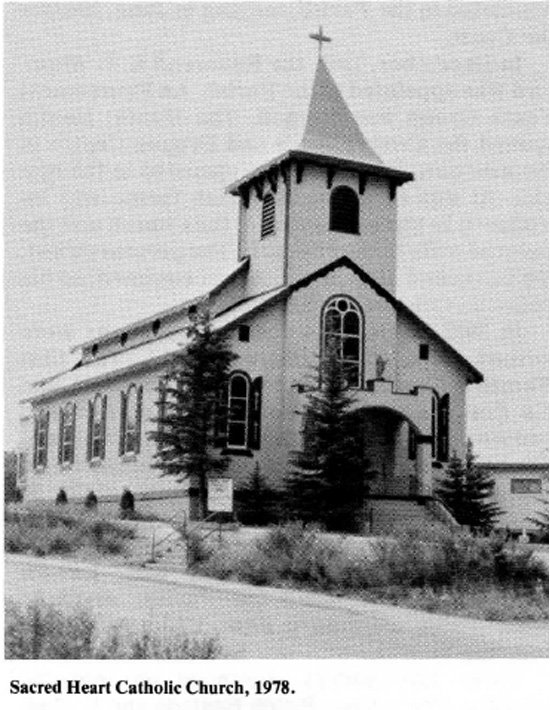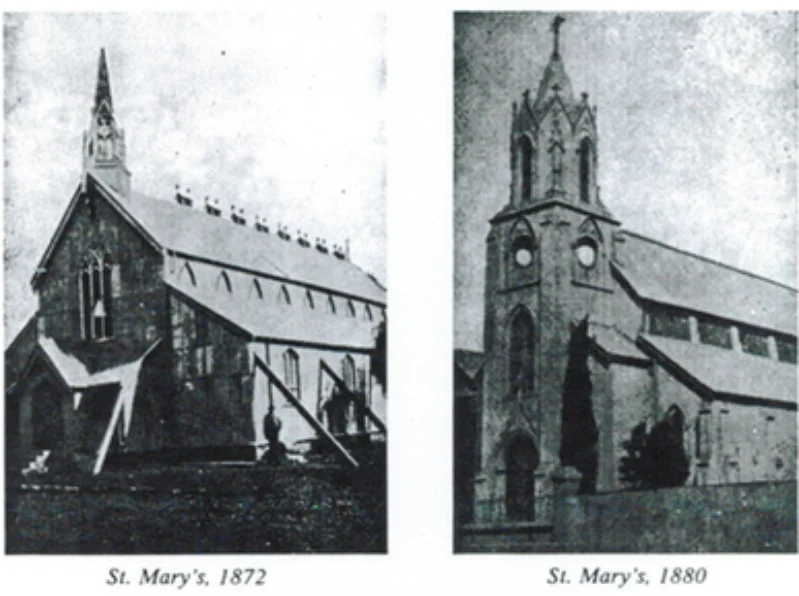History
History of the Diocese in South Africa

The History of the Catholic Church in South Africa began with the arrival of Barthlomew Diaz at Walvis Bay on 8 December 1487. The First Mass celebrated on the island of the Holy Cross just off Port Elizabeth was held in late December 1487 or early January 1488. Tierra De Natal was the land to which Vasco da Game gave name on Christmas day 10 years later. There is no evidence of any missionary work during these early days.
Catholicism was forbidden in South Africa under the Dutch East India Company rule between 1652 and 1795 and continued under the British rule between 1795 and 1802. The Dutch Government opted for religious toleration in 1804, however two years later the British rule again prohibited the presence of priests banishing them. Pope Pius VII appointed the Benedictine Dom Edward Bede Slater as the first Vicar Apostolic of the Cape in 1818, however he never set foot on South African soil as well as his successor Dom William Placid Morris.
The history of the Catholic Church as a visible institution began to take shape with the appointment of Bishop Raymond Griffith, a Dominican as a third Vicar Apostolic of the Cape and First Bishop of South Africa in 1837. Fr. Aidan Devereux became the first Vicar Apostolic in the Eastern Cape Vicariate during 1847. The first missionaries of the newly founded congregation of the Oblates of Mary Immaculate arrived in South Africa during 1852.
Bishop Jean-Francious Allard travelled to the Kingdom of Lesotho where he obtained a mission from King Moshoeshoe, the founder of the Basotho Nation, who was to become one of the strongest Catholic Communities in Africa. Very little had been done for the indigenous people in South Africa. The first significan result came with the Trappists of Mariannhill in the 1880’s, under the leadership of Abbot Francis Pfanner. Innovative missionary methods were developed, combining farming, schooling, and preaching. These efforts eventually led to conversions, contributing to the growth of Catholicism in Natal.
The first four African Priests had been ordained at the turn of the century only in the 1920’s in the Diocese of Mariannhill and led to the establishment of a National Seminary for blacks in 1947. The first South African born bishop, David O’Leary was consecrated in Johannesburg during 1925, however the South African Church still relied heavily on expatriate clergy.
A National Seminary (for Whites) was founded in 1948. Not more than 5 out of 21 Bishops were born locally when Pope Pius XII established the hierarchy in South Africa during 1951. The Catholic Church was relatively slow in opposing apartheid and labored at the cost of the heritage of segregation that it had shared with the rest of the church in most pre-liberation colonial situations.
The South African Catholic Church, long seen as a foreign church has now gained influence in all sectors of society and has shown remarkable signs of growth throughout the 20th century. The hierarchy often adopted a conciliatory stance towards the government in the hope of maintaining the church’s network of hospitals, schools, and welfare institutions during the first decades of the nationalist’s rule.
The Catholic Church fought desperately to retain the educational system seen as its major aid to evangelization when the government struck at church schools for African children with its Bantu Education Act in 1953.
The South African Catholic Bishop’s Conference made its first pronouncement against racism in the 1952 and 1957, condemning apartheid as “intrinsically evil”. Under the influence of the Vatican Council and spurred by protests from black clergy, catholic opposition to apartheid started to intensify. In 1972 a move began to desegregate the seminary which led to the decision taken regarding seminaries and schools.
Furthermore, the Soweto uprising of 1976 led to a greater awareness for more active catholic participation among Catholics in various manifestations of Christian Protests activated mainly by the South African Council of Churches and the Christian Institute. Priority has been given to conflict resolution, education to democracy and development since February 1990. The 150th Anniversary of the arrival of the Oblates of Mary Immaculate in Natal and the 50th Anniversary of the Proclamation of Our lady of the Assumption as Principal Patron of South Africa took place during 2002 in South Africa.
The year 2017 saw the Bicentenary Celebration of the Foundation of the Catholic Church in Southern Africa where the official opening of this celebration was held in Cape Town. Bishops from the Southern Africa Catholic Bishops’ Conference gathered in the Mother City to honor this special day. The Southern Africa Catholic Bishops Conference (SACBC) set aside a period of a year, allowing all the faithful in the region an opportunity of celebrating the successes of the Catholic Church in Southern Africa from the 25th June 2017. These celebrations will officially come to an end on the 24th June 2018.
History of the Diocese in Kimberley
Separated from the Vicariate of natal 1st June 1886, the Diocese of Kimberley, established 11 January 1951, is the North of Orange River and comprises territory in the northern part of the Cape Province. The civil districts in the Northern Cape are: Barkly West, hay, Herbert, Kuruman, Mafikeng, Taung, Vryburg.
The section of Botswana which is south of the Tropic of Capricorn (comprising the civil districts of Lobatse, Gaborone, Molepolole, part of Serowe and Tsabong) was detached from Kimberley Diocese on 24 April 1959. The Roman Catholic Diocese of Kimberly is a thriving and dynamic community of faith, encompassing 196 parishes across the region.
Rooted in a rich tradition of Catholicism and inspired by the Holy Spirit, our diocese is a beacon of hope, love, and compassion for all who seek to grow in their faith and serve their fellow community members. Within our diocese, diversity is celebrated, and inclusivity is a guiding principle. Every individual, regardless of their background or circumstances, is warmly welcomed into our close-knit family of believers.
Our commitment is to serve not only the spiritual needs of our parishioners but also their emotional and physical well-being, recognizing that each person’s & journey is unique. Our vision for the future is one of unity and shared purpose. We aspire to foster a deep and personal relationship with God in the hearts of all our members, encouraging them to live out the Gospel values in their daily lives. As we journey together, we extend our hands in service to those in need, both within our diocese and the wider community.
The Roman Catholic Diocese of Kimberly is dedicated to continuous growth and spiritual development, aiming to make a positive impact on the world around us. We are a community that embraces the challenges of our time with unwavering faith and the timeless values of love, acceptance, and respect. Through our collective efforts, we hope to inspire others and spread the message of Christ’s love to all corners of our region and beyond.
Our Mission
The Roman Catholic Diocese of Kimberly, a diverse and vibrant community of faith, is dedicated to spreading the Gospel of Jesus Christ and serving the spiritual, emotional, and physical needs of our parishioners and the wider community. Rooted in our rich tradition and guided by the Holy Spirit, we strive to be a beacon of hope, love, and compassion, providing a nurturing and inclusive environment where all are welcome.
Value Statement
In the Roman Catholic Diocese of Kimberly, our values are the bedrock of our identity and the compass guiding our actions. Rooted in the teachings of Jesus Christ and animated by the Holy Spirit, we hold these core values dear to our hearts:
Faith-Centered Living:
We embrace a life of faith, seeking to deepen our relationship with God and allowing His teachings to illuminate our path.
Inclusivity and Diversity:
We celebrate the uniqueness of each individual, fostering a community where all are welcomed, accepted, and valued for who they are.
Unity in Diversity:
We cherish the richness of our diverse community, recognizing that our unity is strengthened by the variety of backgrounds, cultures, and experiences within our diocese.
Continuous Growth:
Committed to lifelong learning and spiritual development, we actively seek opportunities for personal and collective growth, adapting to the evolving needs of our community and the world.
Stewardship:
Acknowledging that all we have is a gift from God, we practice responsible stewardship of our resources, both material and spiritual, for the benefit of present and future generations.
Authenticity:
We strive to live authentically, aligning our words and actions with the Gospel values, fostering an environment of trust, transparency, and integrity.
In living out these values, we aspire to be a shining light in our community, reflecting the love of Christ and inspiring positive change in the world around us.
